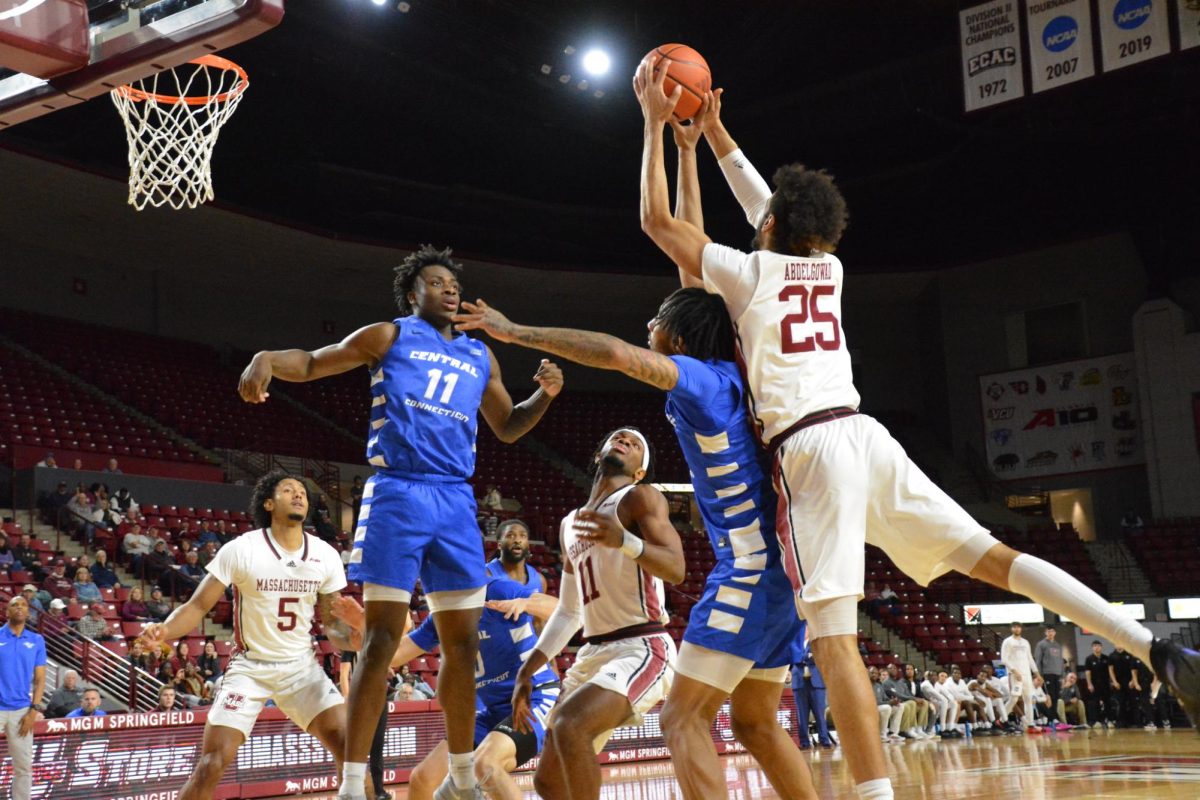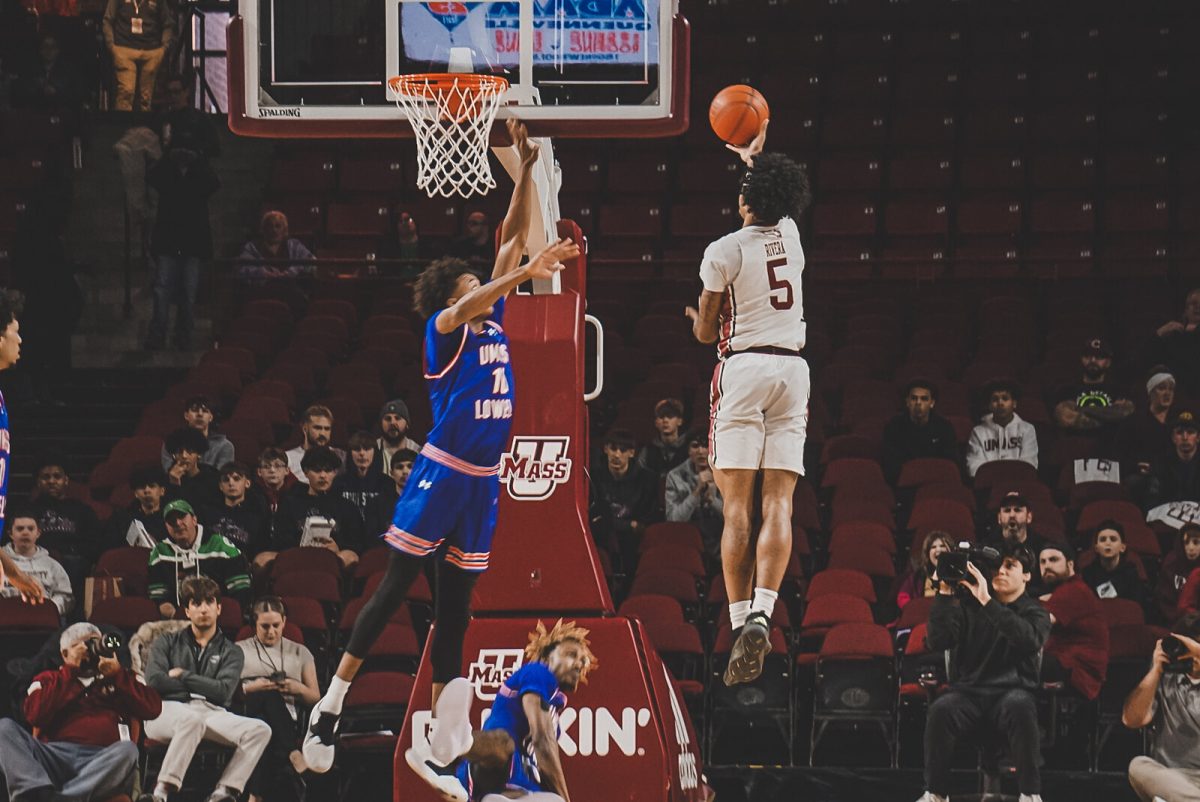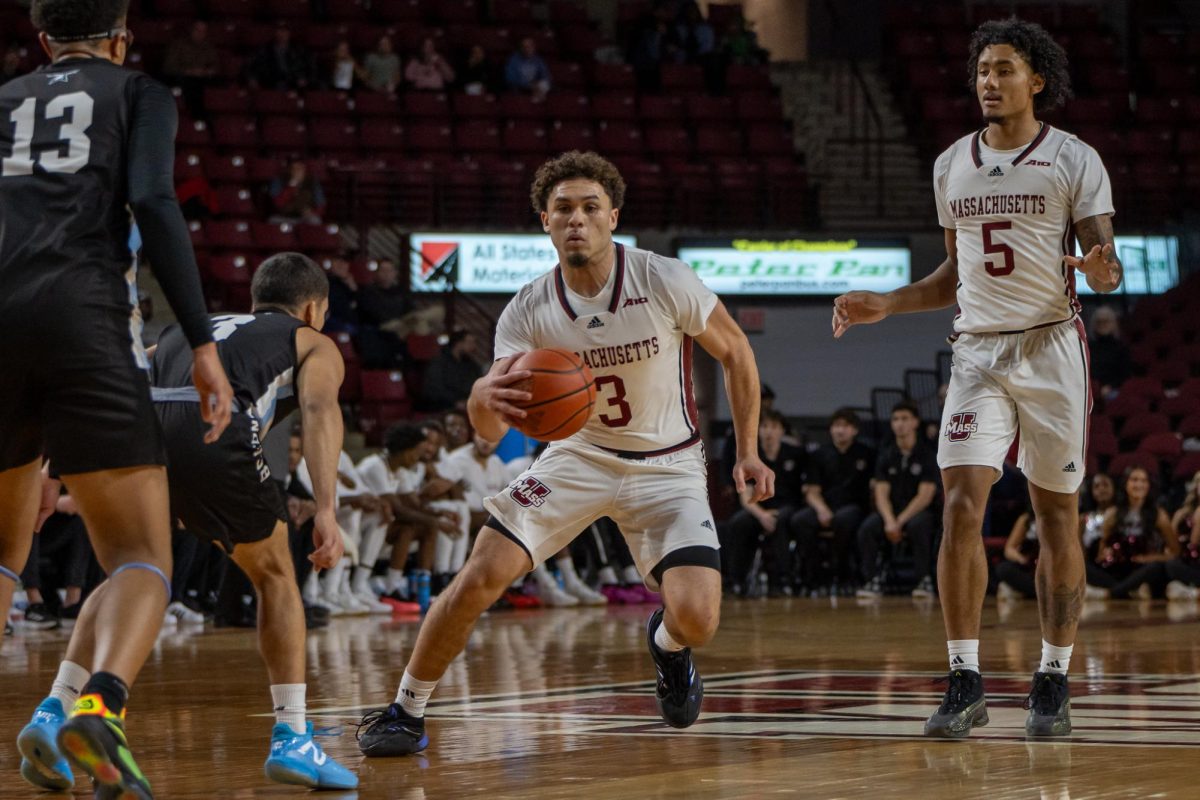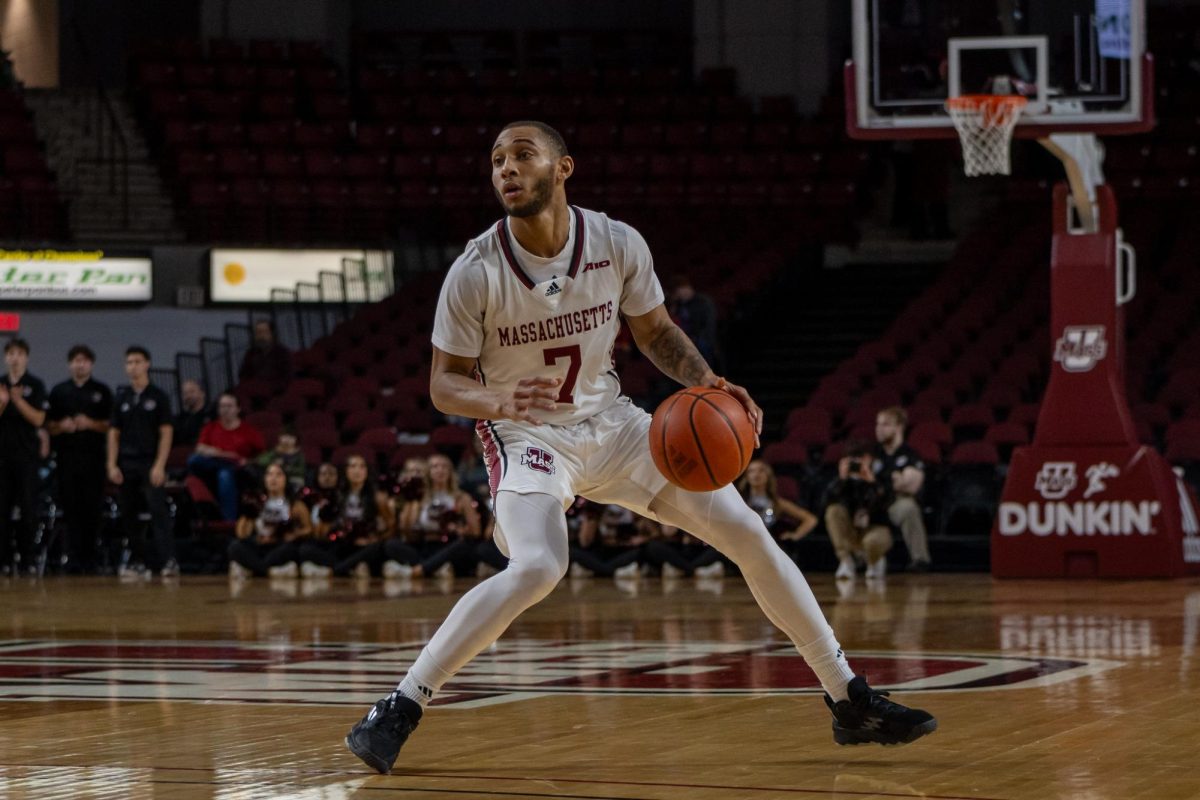
The Massachusetts men’s basketball season is over.
The NCAA tournament selection show came and went earlier this evening, and the Minutemen were not one of the 68 teams selected into the nation’s most prestigious tournament. With a record of 17-15, this was to be expected.
Then, the NIT selection show came and went over an hour later, and again, the Minutemen were not one of the 32 teams selected. This may have come as a slight surprise — teams such as Rhode Island and Iona, which UMass beat, made the NIT — but the Minutemen had a pretty good idea this was coming, too.
So where do they go from here?
Derek Kellogg already said UMass has no interest in accepting a bid to any other postseason tournament, meaning the Minutemen won’t play another second of official basketball this season. This is probably a good thing. Now, the Minutemen must look forward, yet to do that, they must first evaluate what went wrong.
The 2014-15 season was an unequivocal disappointment. UMass entered with lofty expectations and, despite graduating three seniors from an NCAA tournament team the year prior, felt it would at least position itself to contend for a bid again this season. It did not.
As a team, the Minutemen faded considerably down the stretch even after rebounding from a difficult start to the season in which their non-conference schedule proved arduous. They reeled off six straight wins in February — which vaulted them into the outskirts of NCAA tournament bubble contention — only to lose six of their last seven games, including a first-round exit from the Atlantic 10 tournament. This will be the first year since 2011 that UMass doesn’t appear in a postseason tournament.
That’s a failure.
But assessing what exactly failed is much more difficult. Kellogg said following last week’s loss to La Salle he’d evaluate the program from top to bottom. What he’s likely to find is a mixed bag of odds and ends.
“I’ll spend a lot of time reflecting, like I do every year,” Kellogg said. “But when it ends and you haven’t played quite as well over the last couple weeks, then I’ll probably double reflect and really sit and look at myself, the staff, the program and how we do just about everything.”
This regression in the second half isn’t an outlier either, it’s a theme. As Masslive.com pointed out, UMass is 30-34 over the last five seasons under Kellogg in February and March. When Kellogg evaluates the end of this season, what will stick out? Is it the players? The system? Or a combination of the two?
The Minutemen failed to maintain any type of consistency this year. For long stretches, they appeared like a team that had plenty of pieces but lacked the centerpiece to pull it together. Six different players averaged at least eight points per game, but no player averaged more than 11.6.
Balanced? Sure. But UMass didn’t have a player who could shoulder the offensive burden during cold stretches, which may have played into the second issue: the way the team played.
Last season, UMass relied heavily on guard Chaz Williams. He scored, he created for teammates and often — at least on the court — provided a spark for both teammates and fans. At no point this season did that familiar spark carry over.
Kellogg also likes to play a tenacious brand of basketball predicated on defensive pressure which creates transition opportunities offensively. The system works with the right players (ie. Williams), but requires an alpha dog, and UMass didn’t have that this year. What resulted was more of an emphasis on the dribble-drive offense, slightly slower play and more of a reliance on post basketball.
Per Kenpom.com, UMass regressed this season in both offensive efficiency and tempo. It was also a woeful 3-point shooting team, and many of the offensive issues which plagued the Minutemen early never subsided. Again, part of this is because offensive talent graduated after 2014. But a portion of it is concerning.
It also creates the next question: What about next season?

The Minutemen graduate their two leading scorers from this season in Cady Lalanne (11.6 points per game) and Maxie Esho (11.3). That also means they graduate their two de-facto leaders, and it leaves a glaring hole offensively.
What returns are, again, plenty of pieces. Derrick Gordon is a strong perimeter defender and can fill the stat sheet. Jabarie Hinds is a solid piece off the bench, even if he’s prone to fits of inconsistency. Trey Davis needs to return to his strength as a shooter, and that may come with less time running the offense.
The cog is Donte Clark, a swing forward who averaged 9.6 points per game and is capable of taking over games but also capable of disappearing. UMass desperately needs Clark to take the proverbial next step next season and to harness his scoring ability. Take a look at how many teams in this week’s NCAA tournament covet gifted scorers from the wing. Clark could easily be the next.
But beyond that, there are significant concerns. What talent will differentiate itself in the front court to replace Esho and Lalanne’s minutes? Is it Zach Coleman, a skilled but seldom-used forward? Or is it Malik Hines or Rashaan Holloway, two forwards with size who missed this season? It could end up being a junior college transfer capable of stepping in immediately and providing UMass an element of toughness.
Ultimately, UMass faces a frightening realization. The core which Kellogg rode to return success to Amherst is gone, and it enters the off-season with many more questions than answers. Of the players on the roster, some will need to step up and assume bigger roles. If that translates into success remains to be seen, and if this year is any indication, another year of ups and downs could be on the way.
And can the Minutemen afford that?
This season was supposed to be the final year of Kellogg’s initial rebuilding cycle. UMass was supposed to reap the rewards of a methodical rebuild and return to success. Instead, it produced a lost year with a supposed “bridge” year on the way.
The program is in transition, and transition is a scary place to be in college basketball. It must start to cultivate a new core and find new cornerstones. The addition of incoming recruit Luwane Pipkins helps, but these types of things take time — something UMass has less of now.
The goodwill of last year’s NCAA tournament run is nearly gone, evident by the declining attendance numbers this season. Production declined too, and now familiar faces again leave. The evaluation process for next season has officially begun, much earlier than anyone around the Minutemen would’ve liked.
Now, they must sift through the pieces and seek answers despite lacking the clarity that’s accompanied UMass in recent seasons.
Mark Chiarelli can be reached at [email protected] and followed on Twitter @Mark_Chiarelli.


















